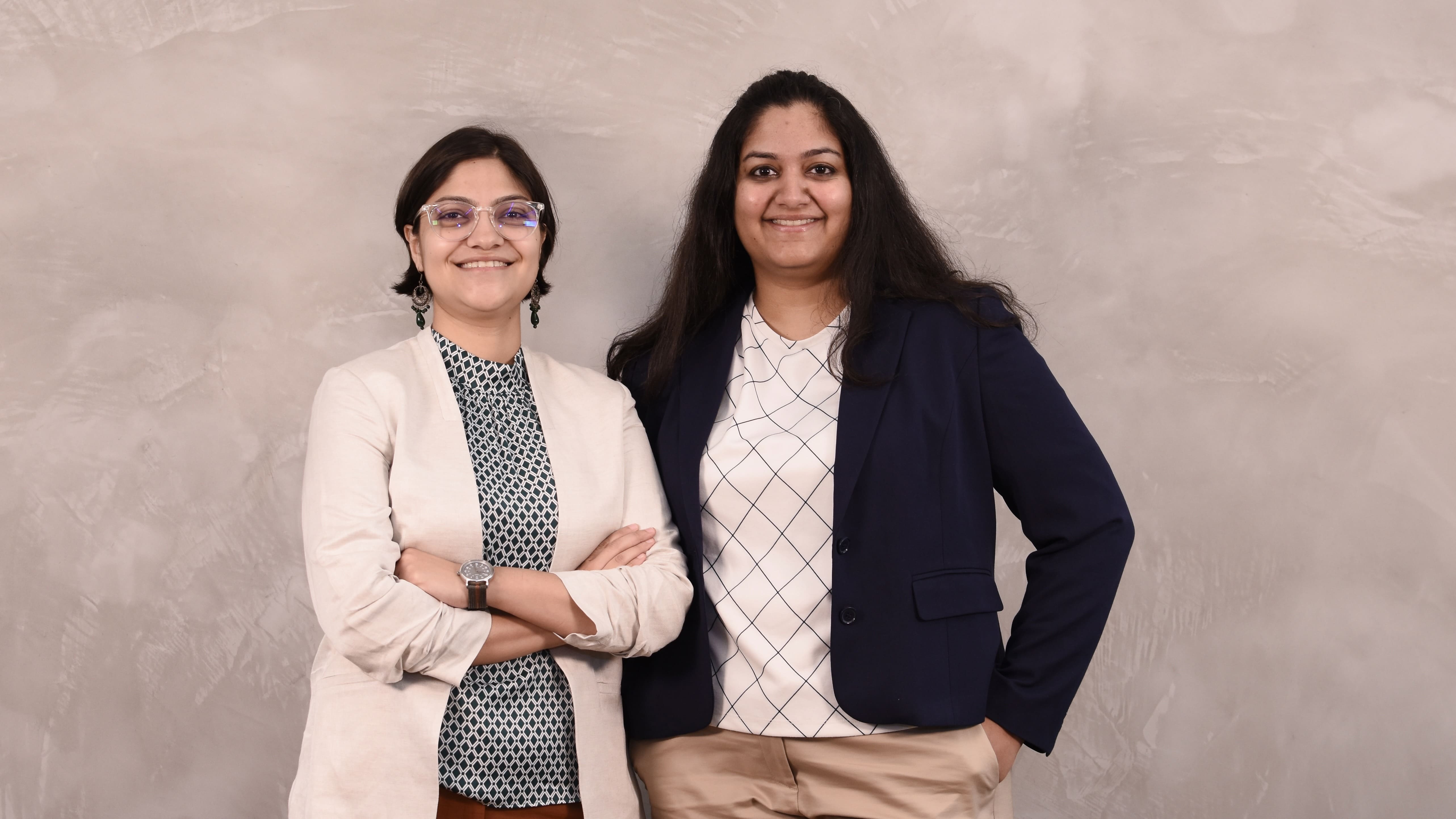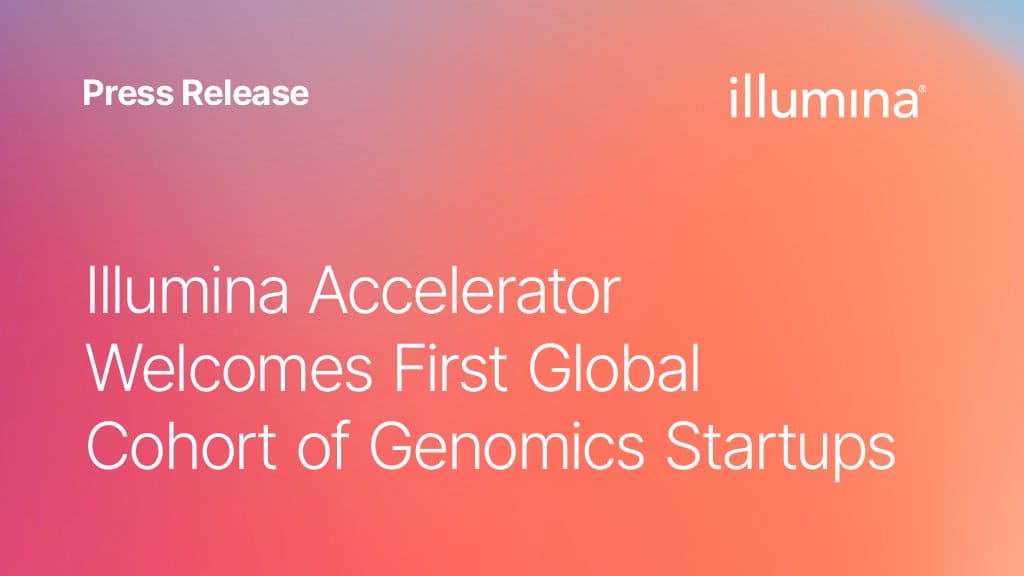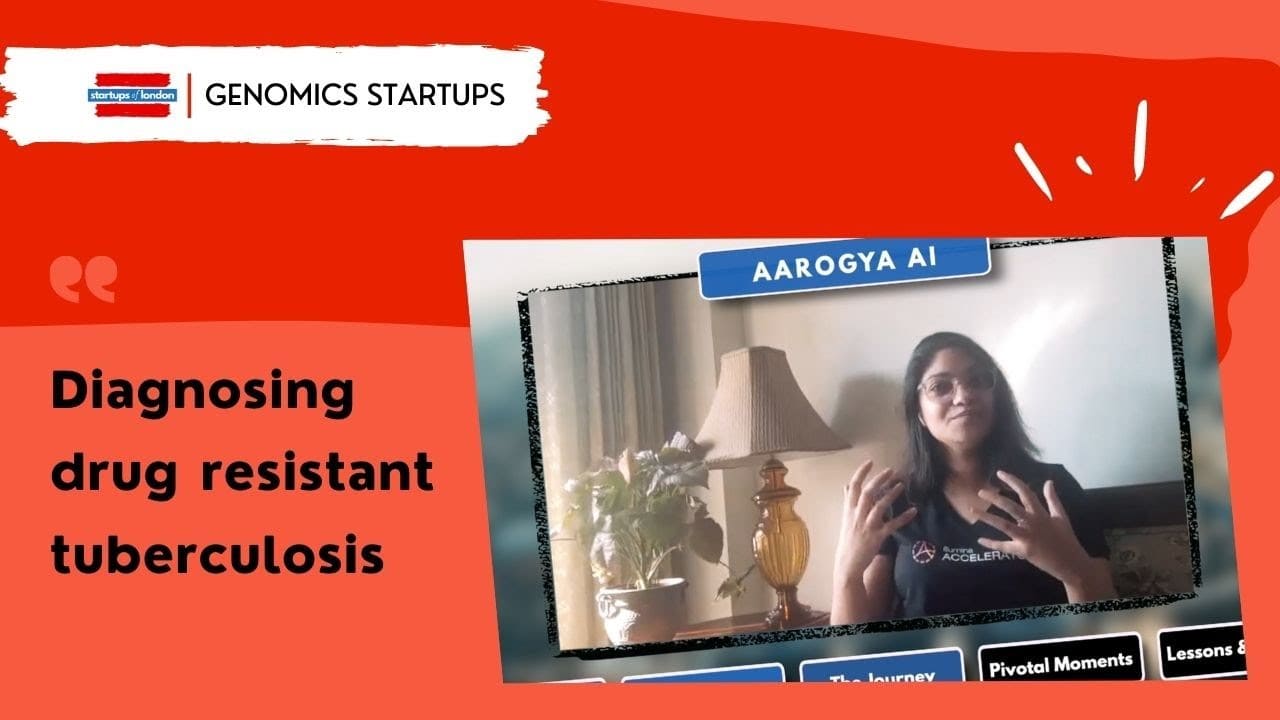AarogyaAI® Drives the Fight Against Tuberculosis
Alumni Spotlight: Co-founders Praapti Jayaswal and Avlokita Tiwari on how they built AarogyaAI®

At AarogyaAI® we use a whole genome sequencing algorithm. We have trained the algorithm on thousands of Mycobacterium Tuberculosis (Mtb) whole genome sequences from around the world. Now, based on its learnings, when a new whole genome sequence is uploaded to the software, it can present data relating to the status of drug resistance for various anti-tubercular antibiotics for a particular patient. So, the idea is to tailor a precision diagnostic for infectious pathogens, beginning with tuberculosis.
We sequence the entire genome of the tuberculosis bacteria, rather than parts and pieces of the
gene known to be associated with resistance. We look at the entire picture, considering all the
other possible mutations throughout the bacteria, and not just restricting our vision to a few
targeted parts of the genome.
There are many methods. One method is to look only at certain sections, others focus on amplifying the mutation, which might lead to resistance and checking for its presence. Other longer and more arduous methods employ cultures to ascertain if it dies in the presence of an antibiotic, but this takes four to six weeks and is a very expensive process.
AarogyaAI® aims to translate research into real-world application. Decades of research have
addressed drug resistance in bacteria, specifically Mtb. Studying the genome was the best approach
to understand and predict resistance patterns. Until now, this analysis of genomes has been under
research.
Currently, it takes four to six weeks to diagnose drug-resistant tuberculosis because of the slow doubling time of the bacteria (24 hours). Our goal is to reduce this time of diagnosis to hours or days. So, it is 100X faster than the existing gold standard, and that is how we are adding value.

The research is primarily in the context of pure biological research and understanding how
tuberculosis manifests itself; the host-pathogen interaction. Because tuberculosis is such an
ancient disease, the bacteria that causes it has been studied extensively. More recently (in the
past 30-40 years), the drugs that have been invented to kill that bacteria are becoming
ineffective due to mutations in the DNA of the bacteria’s genome. That is what is referred to as
drug resistance. Research has shown us that: A) drug resistance has emerged and B) the mechanism
of action for drug resistance emergence. AarogyaAI® is now taking all of that research into
clinical decision-making. When we can identify how drug resistance is occurring, we are able to
identify which particular form of the bacteria is present in a particular patient, and, therefore,
which drugs it is resistant to and which drugs will work. We can give this information to a
clinician so that they can make a data-driven treatment decision toward more positive treatment
outcomes.
We are extremely lucky and excited to have such experienced investors backing us. Redstart Labs is part of the mighty Info-Edge. They believe in the technology we are building and are keen on selling SaaS, which is a very tough market. Avana Capital and Sandeep Single have an amazing approach to financing in India. In combination with these stalwart Indian investors, we have First In Ventures, who we were introduced to through Illumina For Startups. They are our New York-based investors who specifically invest in genomics startups. It is a great mix of niche scientific investors and amazing business capital from India, which will be our first market. We also have our existing investors Entrepreneur First, who saw potential in AarogyaAI® and invested in our pre-seed fund coming in again in this round.

What the Illumina Accelerator experience really allowed us to do was open our minds and thought processes. We started out in India looking at a niche market and TB as our go-to. But at the Accelerator, our mindset evolved into realizing a greater vision for our company. This vision was to help clinicians make more data-driven decisions towards positive treatment outcomes.
Because pathogen genomics is pathogen agnostic, we can adapt our solution to other diseases, which manifest AMR beyond TB, like nosocomial infections, including sepsis, fungal ICU patients, burn patients, and UTIs. All of these are caused by various microbes, which can develop AMR. So, we are building a technology platform and realizing the scope and opportunity present for us – the global market – and how we can utilize our science and translate it into actual application.
It really helped us broaden our horizons and scope of work. To see the possibilities out there and how we could think bigger, think more global, and think business.
We had exposure to the best minds in the world working on infectious disease genomics at Illumina in San Francisco and Cambridge. Exposure to leaders in the space helped us articulate our value proposition.
We have built connections with the scientists working on infectious disease genomics and keep them
up to date on our work. We greatly value their feedback, which helps us improve consistently.
The founders club meetings were the best part. It was a time when we talked about the different
problems we were facing as founders, and everyone – from serial founders to new founders – had
great advice to give. There was a range of people from serial founders to new founders. I learned
things at those breakfast meetings that I still apply daily.
The weekly peer-to-peer interaction with other SF startups was great because everything discussed
was very relatable: the wins, the losses, the “A-ha Moments.” Some of those peer relationships
have been continued beyond the end of the Accelerator.
Dr. Soumya Swaminathan has been a guiding light for us. From being a young scientist to today being the chief scientist at the WHO. Her journey, both scientifically and as a leader, is exceptionally inspiring. She built out a whole TB program, process, and systems for an entire nation, and today for the world in the present context of the pandemic. We appreciate the time she spent with us.
It is also important to shout out to the wider community. More and more women are working in
science whether, it’s research or data collection. This helps inspire younger women to join the
community and believe that science is not just for men. The wider community includes journalists
who have increased coverage of tuberculosis and brought it more into the mainstream, like Vidya
Krishnan and Jyotsna Singh, and the NGOs that support this cause, which the United Nations
Sustainable Development Goals aim to end TB by 2030.
Build awareness. Even today, awareness is lacking in terms of how TB is transmitted (in coughs just like COVID), and what can be done to avoid its spread. TB is an infectious disease, and there are 19 drugs to cure TB. All we need to do is match the right drug to the patient so that that person can be cured. The Stop TB Partnership has asked people to invest more in TB. Not just money, but time, energy, curiosity, know-how.

Be mindful of your mental health and know your own capacity because it’s too easy to let that
slip and keep working. You cannot help or support others unless you are doing well yourself.
It can be isolating at times as a female founder, so seek the support of others in the community.
Don’t isolate yourself and think you need to solve all the problems yourself. Find yourself
another co-founder. The relationship we have is that we can talk about anything, work-related or
otherwise. Talking about how we are feeling is very important in this entire process.
This article was originally published by Illumina Inc on March 23rd, 2022
Sign up here for latest updates from us